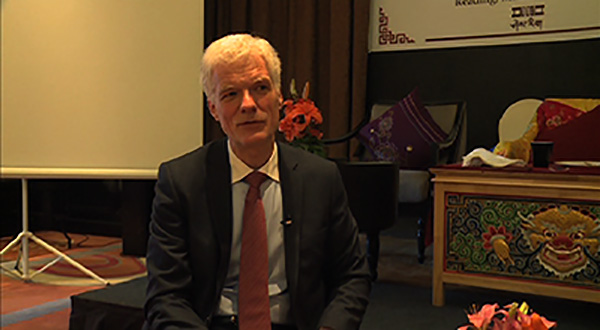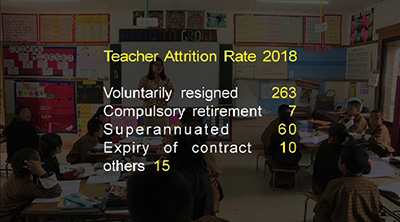 A record number of teachers leave the profession voluntarily every year in Bhutan and the number is only going to increase in the coming years. According to an education expert Andreas Schleicher, this is happening not just in Bhutan but all over the world. Teacher retention is a global problem and concern.
A record number of teachers leave the profession voluntarily every year in Bhutan and the number is only going to increase in the coming years. According to an education expert Andreas Schleicher, this is happening not just in Bhutan but all over the world. Teacher retention is a global problem and concern.
 He said teachers leave the profession not because they get low salaries. He said it is not about making teaching financially attractive but about making it intellectually attractive.
He said teachers leave the profession not because they get low salaries. He said it is not about making teaching financially attractive but about making it intellectually attractive.
As per the Annual Education Statistics 2018, a total of 355 teachers left the profession in 2017. Of which 263 resigned voluntarily. While the report only highlights the number of teachers leaving the profession, it does not explain the reasons.
But as per Andreas, the expectations placed on teachers are high and growing. People expect much more from teachers than what appears in their job description. And to that, the education systems are not keeping up.
“Why do people become teachers? Not generally to earn a great salary but because they want to make a difference. They want to have young people to develop. So in order to give them the opportunity not just teach hour after hour in the classroom but they have time to spend time with individual students to know their students, to know how students learn, to invest in the development of pedagogical practices, to have opportunities for good professional development, for good professional collaboration so that it makes all our jobs interesting.”
He added most schools look much the same today as they did a generation ago. And this has left teachers with fewer opportunities to develop the practices and skills required to meet the diverse needs of today’s learners.
He further added that it is important to build on the expertise of teachers and to include them in the design of policies and practices.
“If you look to a country like Finland that has made teaching particularly attractive. That’s what they have done, they have created an amazing environment where teachers every day discover new things, it’s not only students becoming lifelong learners but also teachers are lifelong learners.”
The Teaching and Learning International Survey that provides data for education analysis and policy development, showed when teachers teach a class jointly, observe other teachers’ classrooms regularly and take part in collaborative professional development, they are more satisfied with their careers and they feel more effective in their teaching.
The question is are schools providing enough opportunities for teachers to participate in this kind of collaboration








